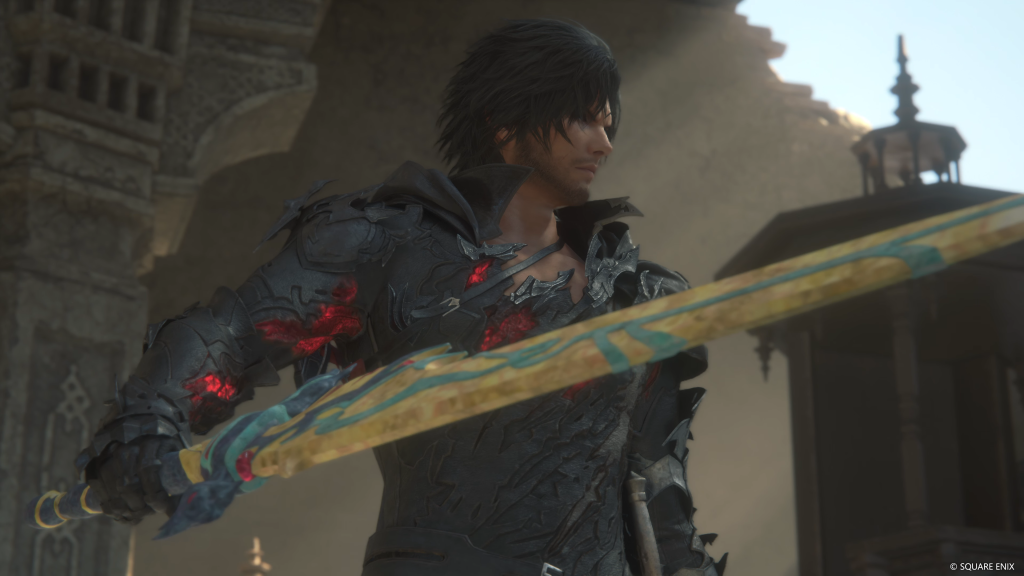In the fall of 1997, I had become consumed with the marketing for Final Fantasy VII. I had just turned 11 and had never seriously played a JRPG at that point. I had multiple consoles at this point, an NES, SNES, and Sega Genesis, but somehow, I never ended up playing many of the seminal JRPGs that are on those platforms. Somehow, though, this game seemed to get its hooks into me, and I had to play it. Maybe it was the television ads that were starting to crop up around the time. Maybe it was the edgy magazine ads that were circulating. I never played Tobal No. 1, but one of its main selling points was a demo disc for Final Fantasy VII that came with the game.

When I finally got the game for Christmas that year, it changed me. I started changing my sleep patterns just to play a video game. Depending on the day I would either stay up past my bed time or wake up around 4 or 5 AM just to get some time with the game in before school. I was emotionally invested in these characters and the problems they were facing. I cried when characters died. I had never done this before when playing a video game. I didn’t immediately have attachment to it because of its excellent combat, it was the story it told. What I connected to in that drafty bedroom at the time was the heart in the game.
In 2023, as the release of Final Fantasy XVI loomed, Square Enix decided to use a strategy similar to what they had done over 26 years earlier, leaned on the idea of a demo being used to sell their game. If you’ve followed video games for as long as I have, you’ll remember that in 90s and early 2000s, demos were a common thing, and they generated a lot of interest. Often times game consoles would have demo discs as pack-ins, or they would be distributed alongside magazines. Not long after the PS2/GameCube/Xbox era began, though, they seemed to fade from use. Today, the only time that people seem to discuss anything regarding demos is Steam Next Fest.
There was initially little fanfare to the idea that Final Fantasy XVI would be receiving a demo. However, once people started to play it, there seemed to be something in the air. This demo contained the entire opening prologue to the game, ending on the emotional cliffhanger where Joshua, a child who had just taken on his Eikon form, was seemingly beaten to death by an uncontrollable Ifrit while Clive cries out in pain, unable to do anything to stop it. It was like a punch to the gut. The demo became so infamous that Twitch streamers and YouTubers would play the game and record their reactions to it as it finished, in many cases bringing the players to tears. Suddenly, this game that was receiving only mild buzz was the talk of gaming circles around the internet.
Even though there has been a lot of scuttlebutt about the series’ continued departure away from turn-based combat, the game finally seemed to have positive momentum that, for a while, drowned out those concerns.
I played Final Fantasy XVI for approximately 70 hours, completing the game’s main story as well as all of the game’s side quests. The short version of this review is that, by the end of my time with this game, I walked away from it feeling as if it is one of the best entries in its nearly 40-year history.
Final Fantasy XVI takes place in the world of Valisthea, where the six nations govern around the monolithic Mothercrystals. Virtually every aspect of life in Valisthea is impacted by these crystals. They are the source of magic in this world and are a finite resource. The balance of power throughout the world is determined by access to not only the Mothercrystals, but to the known Dominants. Dominants are people who are capable of turning into Eikons, mythical monsters who are so powerful that if they are unleashed, they could flatten entire cities in seconds. The world holds Dominants in high regard and tries to take care of them because of this.

Though these elements are unique to Final Fantasy XVI, the themes that they represent are not. Environmental themes and the abuse of natural resources is common in many games in the series, as well as the political theater that comes from those trying to use and abuse those resources. In addition, the depiction of the Dominants and Eikons in the game treat them as if they are nuclear weapons, and their place in their respective governments stand as a deterrent for others to use their Eikons.
Magic is commonplace in the world of Valisthea, but it comes at a cost. For commonfolk to use magic they must physically possess a crystal, which come from the Mothercrystal. These crystals are used to fill wells with water, generate heat and light in homes. The use of magic in the world is grounded and done in a very practical and enjoyable way.
Prior to the game’s release, there was a lot of discussion about the influence of HBO’s Game of Thrones on the game. After playing it, it is pretty hard to argue against it. Visually, the colors used and the setting itself clearly resembles Westeros as depicted in the TV series. The fantasy setting is grounded, they throw the word “fuck” around like there’s no tomorrow.
However, as you play the game, it becomes clear that the influence mostly stops there. As the game progresses, it transitions into feeling like… a Final Fantasy game. The tale of political intrigue and personal redemption progresses and evolves until it ends up embracing that it is, at its core, a Japanese role-playing game where you ultimately will endeavor to kill God.
Through the use of the previously mentioned side quests and the places that the game takes Clive to, the game does a very good job of fleshing out the world of Valisthea. It provides you with small stories that demonstrate what that person does to have an impact on the community around them and that makes you care about the characters. You learn about the inner workings of everything from brothels to street markets, how they operate, and what they contribute to the overall economy and community they inhabit.
I do feel as if there are far too many side quests and I feel as they could’ve condensed them down a bit and still had the same effect. Also, there are some that, from a gameplay perspective, aren’t particularly exciting to play. However, that is forgiven if you stick with them, because some of the later quests have genuinely moving stories attached to them. Also, some of the side quests you do earlier in the game that seem menial end up tying up some type of small loose end later down the road. These things help to make the world feel lived-in and alive, like we are stepping into a place that already existed before we arrived.
Of course, these things wouldn’t matter much if the main story didn’t help to move things along and make your time feel worth it. This is where the game is most successful. Final Fantasy is at its best when it wears its heart on its sleeve, and this game embraces it. The relationships that the characters have with one another make sense, feel earned, and honestly feel very mature. I don’t mean that in an erotic sense, but they just feel like they are real grownups. The relationship with Clive and Jill is the best example of this. They don’t ever put their relationship into question, they are just people who know the other extremely well, love them unconditionally, and respect them. It doesn’t waste time with a “will they, won’t they?” type of plot because of course they love one another.
The relationships between the central cast are elevated by the fact that the vocal performances for their characters are excellent. In particular, Ben Starr’s performance as Clive is tremendous. Throughout the game there are multiple moments where the emotion coming from his voice feels very raw and very real. When he cries because Joshua has died in the prologue, it feels like he is genuinely watching his brother be killed in front of him. Ben said in the press leading up to the game’s release that he learned of his father’s death during recording his performance and that it helped him process his grief. It’s an outstanding performance and is likely one of the best vocal performances in the entire medium of video games
From the perspective of gameplay, the game was more than capable of holding my attention throughout. The combat is very fun and responsive. I know that there were jokes calling the game Devil May Clive, but despite the dramatic departure from Final Fantasy of yore, I think the combat holds up. My only gripe about it is that, for most battles, you end up repeating the same sequences over and over as they are usually the most effective. Still, though, it was enough for me to have a good time.

Sure, I experienced some technical issues on occasion and the side quests started to get exhausting when waiting for things to get good, but overall, this is the most I’ve been captivated by a single-player Final Fantasy game since Final Fantasy X. I know it isn’t what everyone expects a game in this series to be, but it meets my definition. Its heart and love for the characters and the world around them is what makes this a landmark Final Fantasy entry for me. The team behind the outstanding Final Fantasy XIV hit it out of the park once again with this entry and I look forward to seeing what else they can do in a single player space.
4 Stars: Great. A very enjoyable and memorable game.


Leave a comment